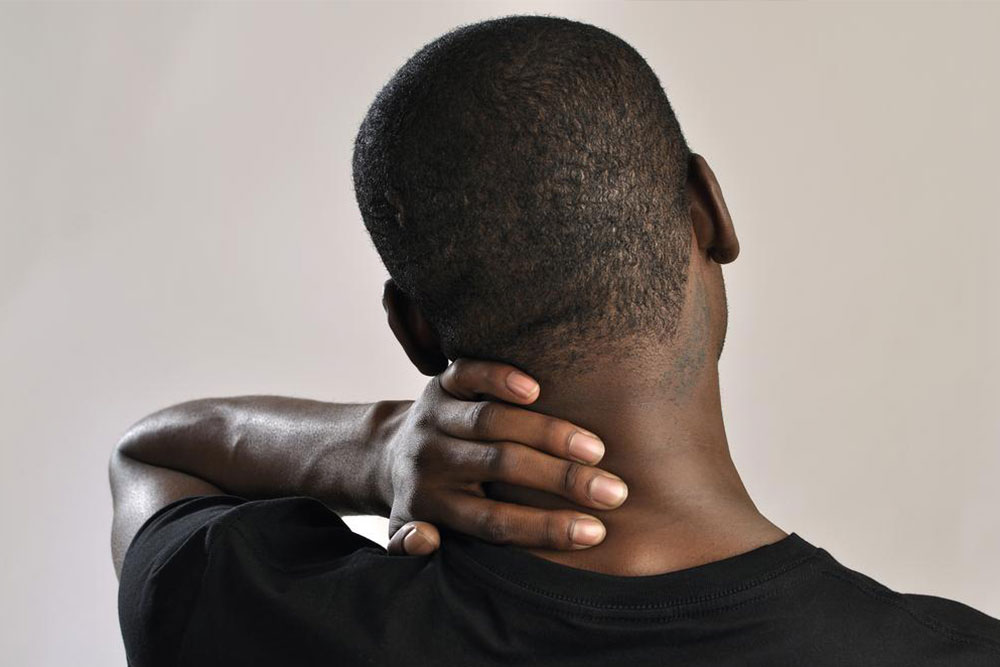Exercises that Can Help Relieve Neck Nerve Pain
Neck pain is a condition most people experience all around the world. Research has shown that between 22% and 70% of people in the country experience neck pain during their lifetime. Herein, we provide a brief overview of neck nerve pain, its causes, symptoms, and essential exercises you should try for a pinched neck nerve.
What is Pinched Neck Nerve?
This is a damaged or injured nerve in your neck.

- Narrowing Spinal Space
Also known as spinal stenosis, this condition involves the narrowing of the space within the bones that encase the spinal cord (vertebrae) which in turn squeezes the nerves in the neck. - Herniated Disks
Whenever a cervical disk slips out of place, the pressure is placed on your neck nerves. - Degeneration of Disks
Factors like age can cause the spinal disks to degenerate. When this occurs, the vertebra becomes compressed, leading to a nerve pinch. - Bony Growths
Bony growths that occur in the neck due to degenerative disk diseases normally place pressure on the surrounding nerves.
Other than these cases, a pinched nerve may occur mainly due to poor posture (rounded shoulders and a forward head posture). Such a posture places more stress on certain neck areas, and this can cause;
- Inflammation in the area where your nerves exit the spine and extend to the arms
- A bulge of the disk that sits between vertebrae; this, in turn, compresses the nerves that exit from the spine
Symptoms of Neck Nerve Pain
The symptoms of pinched neck nerve pain may vary depending on the nerve that it is involved. You may experience pain near the shoulder blades, on one side of the neck or numbness and tingling in the arm. In most cases, patients go for a diagnosis of elbow tendonitis, and the results may show that the actual cause of the problem is nerve irritation in the neck. It’s evident that this condition can be easily misdiagnosed.
Long-term Solution
As aforementioned, poor posture for a long period of time is the most common cause of this condition. So, the solution is to fix your posture to get sustainable relief. In most cases, poor posture either leads to irritation or inflammation of the neck nerve or it leads to degenerative changes that could compress the nerve. So what should you do? Stretches and exercise are viable options you can explore as well as surgery.
Exercises to Help Relieve Neck Nerve Pain
Since exercise is one of the options you have for relieving neck nerve pain, it’s important to know the best workouts for neck pain. Listed here are 5 effective exercises for alleviating neck nerve pain and correcting a faulty posture that is commonly associated with this condition. It’s essential to know that not all exercises will work for everyone. In case you experience pain with any of the workouts, do not perform them.
The first three workouts will help to combat the immediate nerve neck pain symptoms, while the last two are postural exercises to help you fix the cause of the problem.
- Median Nerve Slider
This exercise will help you relieve tension on the nerves that extend from your neck and travel down toward your arm. Note that the exercise may or not be appropriate, depending on the neck nerves that are involved. - Chin Tuck While Looking Down (forward flexion)
With this workout, you will get to work on opening up joint spaces in your neck. This will provide relief on the neck nerve that had been compressed. - Ulnar Nerve Slider
This workout offers the same benefits as the median nerve slider, but it targets different nerves. Just like the first workout, the exercise will not be appropriate for all. In case you notice an increase in pain while doing this exercise, you should know it’s not appropriate for you. - Supine Chin Tucks
Although this is another version of the chin tuck, the workout focuses on strengthening the muscles found at the front part of the neck. These muscles become lengthened and weak with poor posture. When these muscles are weak, it becomes hard to maintain proper posture especially when sitting. - Standing Pull Apart (with resistance bands)
This is the final exercise in this series, which is focused on posture. It will strengthen the muscles between shoulder blades and the back part of the shoulders, allowing you to have the strength you need to maintain proper posture.
Consider trying out any of these exercises and note how you feel after them. Although treating a pinched neck nerve pain isn’t a no-pain-no-gain situation, make sure you listen to your body. If you start exercising and the symptoms worsen, do not hesitate to see a physical therapist for additional diagnosis.